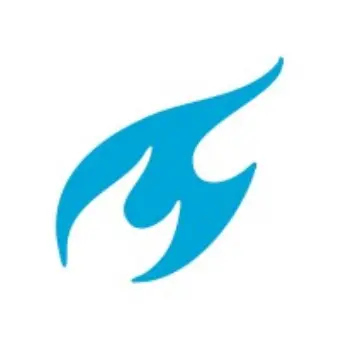Postdoc Intelligent Diagnostics and Prognostics for Polymer Bearings

Delft University of Technology (TU Delft)
AI-enabled polymer monitoring via multi-sensor intelligent non-destructive data fusion
Job description
In support of industry’s drive toward ultra-efficient, high-speed electric machinery, the next generation of rolling bearings increasingly relies on lightweight, low-friction polymer cages made from advanced polymers and composite materials (e.g., PEEK, PA66, PA46). These materials enable quieter operation and higher rotational speeds, but their dominant failure modes are challenging to detect early with conventional single-sensor approaches. To ensure reliability and enable predictive maintenance, there is a pressing need for AI-supported, high-speed non-destructive monitoring methods that operate under realistic service conditions.
This postdoctoral position is part of PolyMIND (AI-enabled Polymer monitoring via Multi-sensor Intelligent Non-destructive Data fusion), the funded project from the Dutch Polymer Institute (DPI). The main objective is to develop and validate a real-time, AI-enabled multi-sensor fusion platform for diagnostics and prognostics of polymeric bearing cages. The work spans the full pipeline: establishing a rotating-bearing test bench; instrumenting it with different sensing modalities such as vibration, acoustic, and thermal sensing; and developing machine learning algorithms for early damage detection, health indicator extraction, and remaining useful life prediction.
The successful candidate will take a leadership role in experimental integration and data curation, work closely with DPI stakeholders and industrial partners throughout the project, and contribute to high-impact publications and technology guidelines for implementation. This position is embedded in Center of Excellence in AI for Structures, Prognostics & Health Management within the Faculty of Aerospace Engineering at TU Delft. The group advances AI-based SHM, prognostics and health management (PHM) for aerospace operations and maintenance, with strong expertise in sensor fusion, stochastic modeling, and machine learning.
Your role:
- Design, build, and commission a laboratory test bench for rotating bearings with synchronized multi-sensor (e.g., vibration, acoustic, thermal) data acquisition under controlled load and speed.
- Plan and execute experimental campaigns on polymeric cages, capturing damage evolution from pristine to end-of-life and establishing ground truth via inspections.
- Develop deep learning pipelines for fault detection, damage-type classification, health indicator extraction, and remaining useful life prediction.
- Liaise with industrial partners to align experiments with operational needs, secure specimens, and exchange interim results; contribute to joint publications and dissemination.
- Assist in supervising MSc/PhD students and contribute to research proposals where relevant.
Job Requirements
Essential job requirements:
- PhD in engineering (e.g., aerospace, mechanical, electrical), applied physics, mechatronics, or a closely related discipline.
- Demonstrated hands-on experience with bearing or rotating machinery condition monitoring, including test bench setup/operation, high-frequency data acquisition, and sensor integration (vibration, AE, thermal).
- Strong background in signal processing and machine learning (Python and/or MATLAB), with a track record in diagnostics/prognostics for engineering systems.
- Excellent command of English (written and oral), ability to work effectively in a collaborative, interdisciplinary, industry-linked environment.
Desirables
- Knowledge of polymeric/composite materials and their thermo-mechanical behavior; experience with PEEK or polyamides is an advantage.
- Experience with explainable AI, uncertainty quantification, or physics-informed learning.
- Familiarity with standards in bearings, automotive, or aerospace sectors.
TU Delft
Delft University of Technology is built on strong foundations. As creators of the world-famous Dutch waterworks and pioneers in biotech, TU Delft is a top international university combining science, engineering and design. It delivers world class results in education, research and innovation to address challenges in the areas of energy, climate, mobility, health and digital society. For generations, our engineers have proven to be entrepreneurial problem-solvers, both in business and in a social context.
At TU Delft we embrace diversity as one of our core values and we actively engage to be a university where you feel at home and can flourish. We value different perspectives and qualities. We believe this makes our work more innovative, the TU Delft community more vibrant and the world more just. Together, we imagine, invent and create solutions using technology to have a positive impact on a global scale. That is why we invite you to apply. Your application will receive fair consideration.
Challenge. Change. Impact!
Faculty Aerospace Engineering
The Faculty of Aerospace Engineering at Delft University of Technology is one of the world’s most highly ranked (and most comprehensive) research, education and innovation communities devoted entirely to aerospace engineering. More than 200 science staff, around 270 PhD candidates and close to 3000 BSc and MSc students apply aerospace engineering disciplines to address the global societal challenges that threaten us today, climate change without doubt being the most important. Our focal subjects: sustainable aerospace, big data and artificial intelligence, bio-inspired engineering and smart instruments and systems. Working at the faculty means working together. With partners in other faculties, knowledge institutes, governments and industry, both aerospace and non-aerospace. Working in field labs and innovation hubs on our university campus and beyond.
Click here to go to the website of the Faculty of Aerospace Engineering.
Conditions of employment
- Duration of contract is 2 years Temporary
- A job of 36-40 hours per week.
- Salary and benefits are in accordance with the Collective Labour Agreement for Dutch Universities.
- An excellent pension scheme via the ABP.
- The possibility to compile an individual employment package every year.
- Discount with health insurers on supplemental packages.
- Flexible working week.
- Every year, 232 leave hours (at 38 hours). You can also sell or buy additional leave hours via the individual choice budget.
- Plenty of opportunities for education, training and courses.
- Partially paid parental leave
- Attention for working healthy and energetically with the vitality program.
Will you need to relocate to the Netherlands for this job? TU Delft is committed to make your move as smooth as possible! The HR unit, Coming to Delft Service, offers information on their website to help you prepare your relocation. In addition, Coming to Delft Service organises events to help you settle in the Netherlands, and expand your (social) network in Delft. A Dual Career Programme is available, to support your accompanying partner with their job search in the Netherlands. .
Additional information
If you would like more information about this vacancy or the selection procedure, please contact Dimitrios Zarouchas, via D.Zarouchas@tudelft.nl or Dr. Morteza Moradi (m.moradi@tudelft.nl).
Application procedure
Are you interested in this vacancy? Please apply no later than 30 November 2025 via the application button and upload the following documents:
- CV
- Motivational letter explaining your motivation for applying to this position and detailing your experience with bearing condition monitoring and diagnostics/prognostics
- Up to two representative publications
You can address your application to Dimitrios Zarouchas.
Please note:
- You can apply online. We will not process applications sent by email and/or post.
- As part of knowledge security, TU Delft conducts a risk assessment during the recruitment of personnel. We do this, among other things, to prevent the unwanted transfer of sensitive knowledge and technology. The assessment is based on information provided by the candidates themselves, such as their motivation letter and CV, and takes place at the final stages of the selection process. When the outcome of the assessment is negative, the candidate will be informed. The processing of personal data in the context of the risk assessment is carried out on the legal basis of the GDPR: performing a public task in the public interest. You can find more information about this assessment on our website about knowledge security.
- Please do not contact us for unsolicited services.


